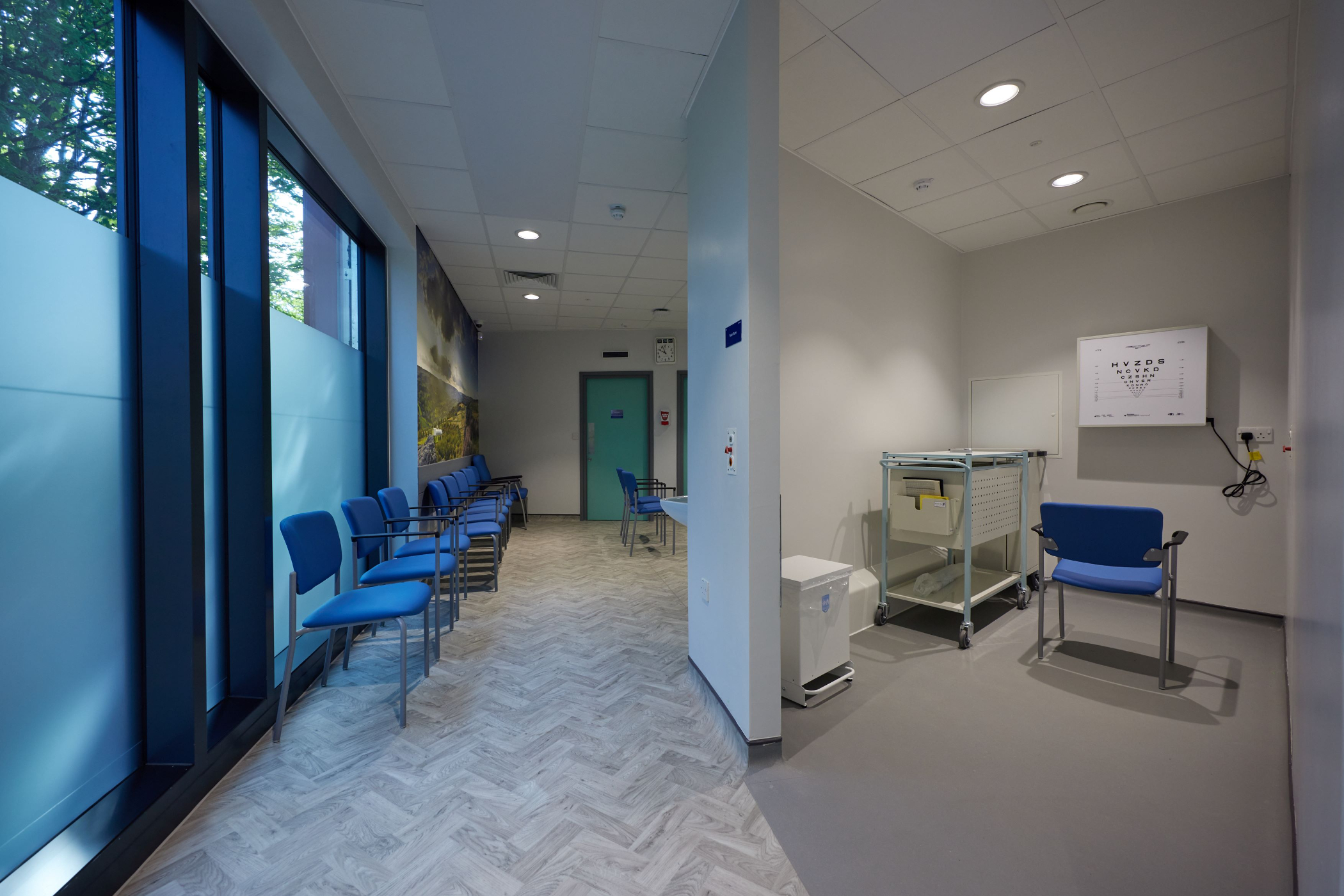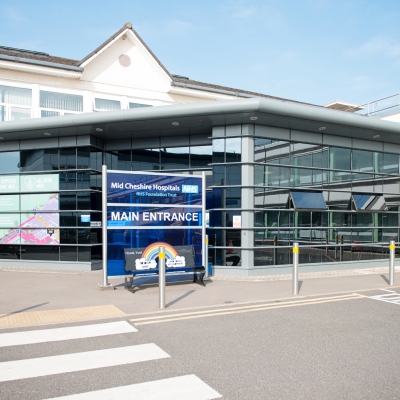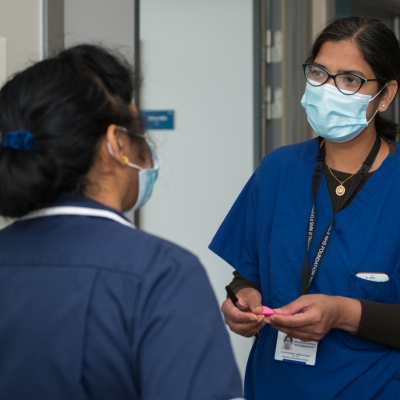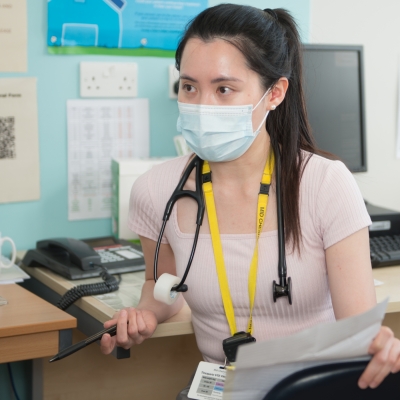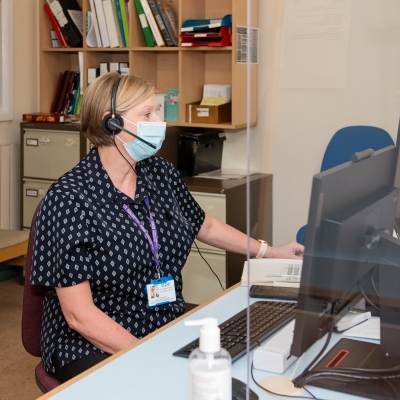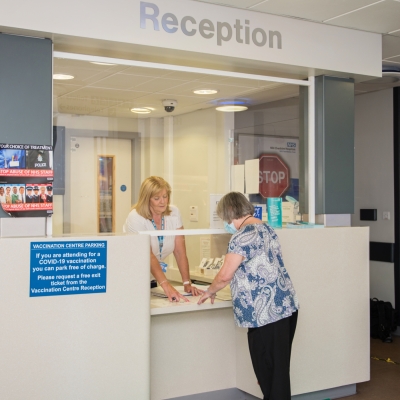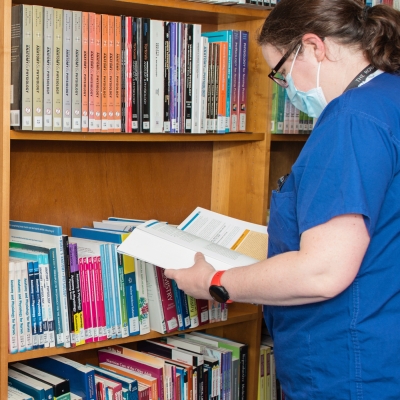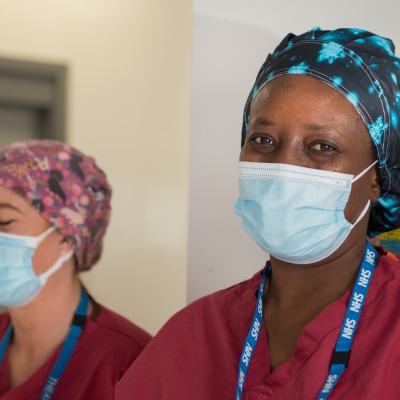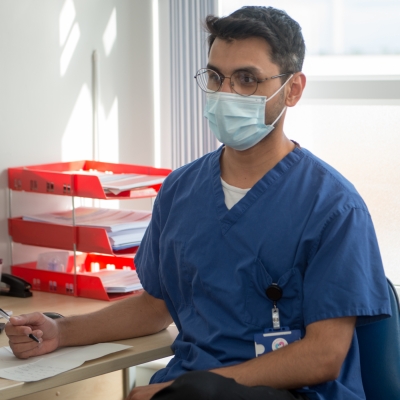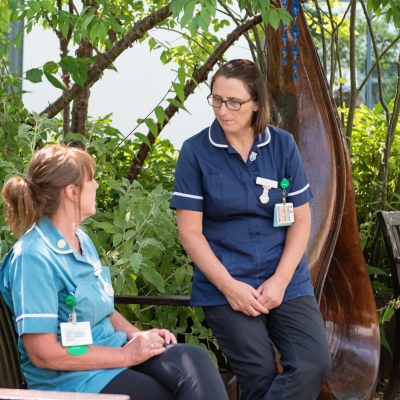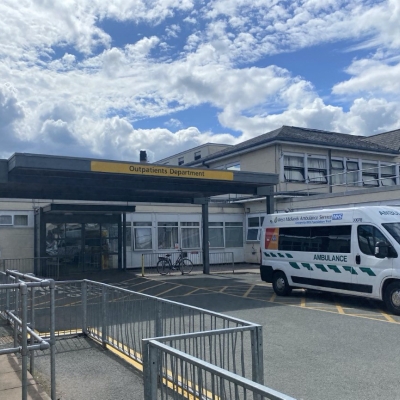Cataract surgery is a straight-forward and painless procedure, which is typically done on an outpatient basis, meaning you can go home the same day.
The surgery involves removing the cloudy lens (the cataract) and replacing it with a clear, artificial lens. The procedure is usually done under local anaesthesia, which numbs the area around the eye, so you’ll be awake but relaxed during the surgery.
Most people recover quickly and see significant improvement in their vision.
Below is a step-by-step guide to help you understand what to expect during your upcoming treatment on our Cataract Fast Track pathway:
Prior to attending the cataract clinic for your assessment, you will have a telephone consultation with our ophthalmology pre-assessment nurse. During this telephone appointment the nurse will complete a detailed health assessment with you, assess your suitability to have the day case cataract surgery under local anaesthetic and ensure you have all the information you need for your next appointment in the cataract assessment clinic. You will also be provided with information on the cataract surgery procedure.
The Cataract Assessment Clinic will take place at the Victoria Infirmary Northwich. On arrival please report the main entrance which is signposted before being directed to the dedicated cataract assessment clinic.
During your cataract assessment you will meet our dedicated cataract team and can speak to a consultant ophthalmologist about your surgery.
On arrival, a clinical support worker will assess your visual acuity and undertake some non-evasive tests, including checking your blood pressure, pulse, and eye pressure.
An experienced ophthalmology nurse will carry out a measurement on your natural lens in preparation for your new artificial lens.
Following this, eye drops will be place into your eyes that dilate your pupil so that the consultant ophthalmologist can fully examine the health of your eye. Your vision will be blurred for up to six hours after this, so it is advisable not to drive.
The consultant may request an additional scan to further assess your retina. This will be explained to you if required.
Please ensure you bring a list of your current medication, your distance glasses, and your current glasses prescription if you have it.
During your appointment the Consultant Ophthalmologist will conduct a detailed eye assessment, the results of this along with other information from your previous tests will confirm if any surgical intervention is required.
The consultant will discuss with you the benefits of the surgery if required, expected visual outcomes for yourself, the aftercare and recovery journey as well as discuss the risks involved in surgery. The consultant will invite you to ask any questions or discuss any worries you may have.
If surgery is recommended and you agree, a date for your cataract procedure will be offered to you in this appointment.
Your surgery will take place at the new Cheshire and Merseyside Surgical Centre at the Victoria Infirmary in Northwich.
Verdin House building is signposted from the car park and there are dedicated drop off/collect bays outside for patients who are undergoing procedures in the surgical centre.
On arrival at Verdin House you will be directed to Surgical Centre Reception where you will book in for your procedure.
You will then be greeted by a registered nurse in the day case admission office, who will confirm your details, re-assess you for any health or medication changes since your Cataract Assessment Clinic appointment.
In preparation for your cataract surgery will have a mark placed upon your forehead indicating which eye is to be operated on. Then a dilating pellet called a Mydriasert will be placed into your lower eyelid. This slowly releases a dilating drug in preparation for your surgery.
You will then be taken to the day case area to relax and wait for your allocated surgical time.
Please ensure you bring your current PRN medication, such as asthma inhaler, diabetic medication, and angina spray, as well as walking aids (if required). Please also ensure you have contact details for a relative or friend who will be taking you home after the surgery.
When it is time for your surgery, you will be escorted by the cataract theatre team into the anaesthetic room and assisted onto the surgical trolley, before being transferred into the theatre. Your Mydriasert pellet will be removed at this point.
The theatre team, including the consultant who will perform the surgery, will greet you, confirm your identity, and ensure you are comfortable and ready for the procedure. A dedicated theatre support worker will also be available to sit with you during the surgery in case you need any additional support.
After the surgery, you will return to the day case area to rest and recuperate, we will offer you some refreshments, discuss with you post-surgery care, including eye drop regime.
After a brief period of recovery, you will be able to leave the day case area and return home.
Do I need to take anything with me?
During your Cataract Clinic please ensure you bring:
- A list of your current medication
- Your glasses
- A current eyesight prescription if you have it.
On the day of your surgery, please ensure you bring:
- Your current PRN medication, such as asthma inhaler, diabetic medication, and angina spray
- Walking aids (if required),
- Contact details for the relative or friend who will be taking you home after the surgery.
How long will my cataract assessment appointment take?
Approximately two hours. This includes the time to allow your pupils to dilate, tests, and consultation.
How long will my cataract surgery take?
On average the cataract operation takes approximately 20 minutes, but you will be at the surgical centre for approximately 2-3 hours from the time of admission to discharge.
Can I drive after my cataract assessment, or after surgery?
No. Dilating the eyes causes’ blurred vision and sensitivity to light, meaning that you won’t be able to drive from your appointment, further, you will have an eye shield on after your operation so it’s important to arrange a lift with someone you know.



